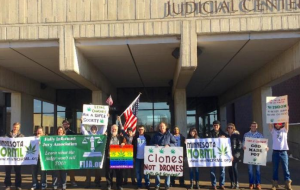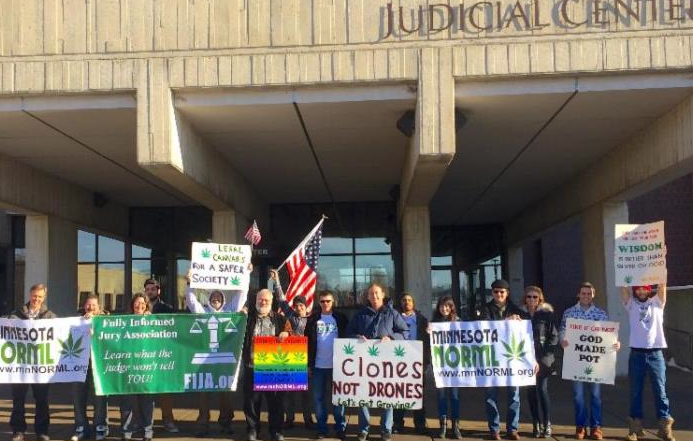A bill to legalize medical marijuana is making its way through the Minnesota legislative system and sparking debate, especially on college campuses.
Some St. Thomas students are involved with the National Organization for the Reform of Marijuana Laws, a nonprofit lobbying organization working to legalize marijuana. Junior Jake Powell has attended MN NORML meetings and said that his support for legalization of marijuana makes sense from a business point of view.
“In 2014, it was estimated that the state of Minnesota spent $150 million just on the prohibition of marijuana,” Powell said. “There are better ways to spend that money that are more effective. We have potholes the size of craters out here.”

Junior David Robey said he supports legalization because of the monetary and financial gains to be had.
“You can see the benefits in Colorado where it is legal. They’ve made a ton of money from tax revenues off marijuana sales, and hemp can be used in a variety of ways like as a biofuel, medicine and building material,” Robey said. “It’s an untouched resource in America that can’t be researched because it’s illegal.”
Associate Dean of Students Jim Sachs said that regardless of potential profits and business motivations, marijuana needs to be treated as a drug.
“It is a powerful drug, but people who are smoking it often think it’s just pot, when in reality, it’s tetrahydrocannabinol, which is a powerful neurotransmitter,” Sachs said. “The cavalier nature that people have with marijuana is what concerns most people.”
Sophomore Emma Button said she is concerned about the relaxed attitudes some people have toward marijuana and the problems that it can cause.
“If there were no legal repercussions, people would use it with more of a relaxed attitude than they already do. They would not be aware of the dangers that come along with it and harm that they could cause,” Button said. “Using any substance that alters your state of mind or is used as a substitute for real happiness could have ramifications.”
MN NORML Field Organizer Emily Bailus claimed that any concerns about potential health risks are a result of people being misguided by inaccurate information.
“There have been numerous studies showing that concerns that people have for health risks associated with marijuana are unfounded,” Bailus said. “Nobody has ever died or overdosed from it, and it’s not addictive.”
Robey agreed that incorrect information is problematic, and that it is part of the reason it remains illegal.
“In the 1930s, when they were doing research on marijuana’s effects, they were giving abnormal doses to rats. That just shows how corrupt some of that older data might be,” Robey said.
However, Sachs said there are still health risks that go along with using the drug.
“Safety concerns are first and foremost because it’s like any other drug. There are side effects present when someone chooses to use it,” Sachs said.
Robey said he understands the risks, but he also believes that he should be allowed to assess those risks for himself and choose whether or not to use marijuana.
“It’s important to stand up for what you believe in and not just stay quiet about things,” Robey said. “I feel like it should be legal like alcohol is, and I shouldn’t be told what I’m allowed and not allowed to put in my body.”
While Robey is pro-legalization, he said he recognizes that people need to be mindful of the pros and cons of marijuana use.
“Regardless of what anyone thinks, there are still positives and negatives to anything that we choose to put in our body,” Robey said. “Like we do with cigarettes and alcohol, we need to be able to talk openly about what you really get from it and what it takes away from you.”
Tom Pitzen can be reached at pitz2014@stthomas.edu.



